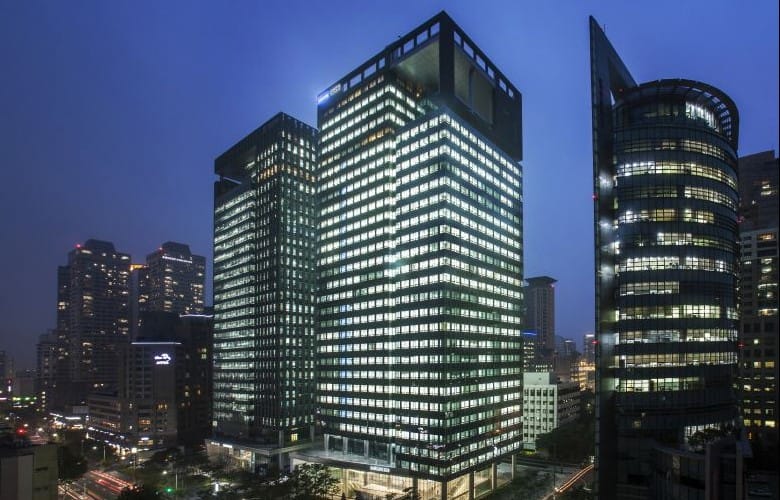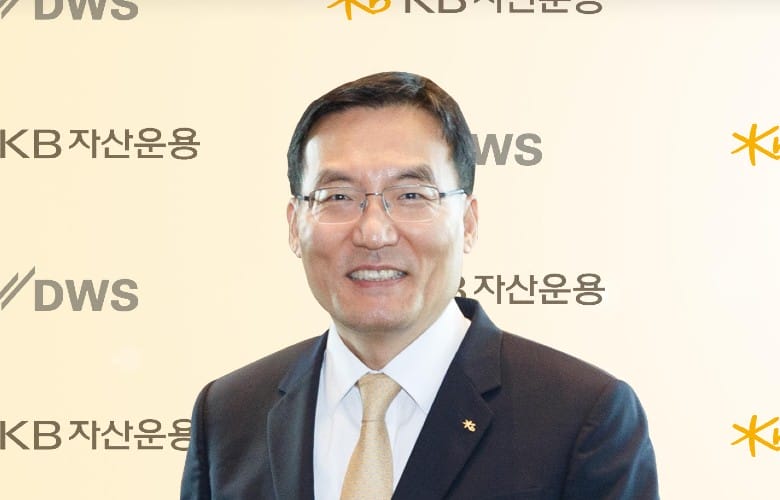
The Samsung SDS Tower in Seoul
The asset management arm of Korean financial services giant KB Financial Group has completed its KRW 850 billion ($630 million) purchase of the Samsung SDS Tower in Seoul, according to a statement by property consultancy Colliers, in Asia’s second largest single-asset office transaction this year.
Seoul-based KB Asset Management acquired the two-tower complex, which serves as the headquarters of Samsung’s information technology subsidiary Samsung SDS, from a REIT managed by local investment firm Ryukyung PSG Asset Management, as investors continue to snap up prime office properties in the Korean capital.
“This significant milestone at the end of the year sparks high expectations for what’s in store for Korea in the upcoming years,” said Sungwook Cho, managing director and head of capital markets for Colliers in Korea, whose team advised on the transaction.
The KRW 8.5 million per square metre trade marks the largest real estate transaction in Korea this year and the latest in a series of Seoul office deals, reflecting rising investor interest as the market bucks a global office downturn thanks to strong rental demand, historically low vacancy rates, and limited impact from the work-from-home trend.
Fully Leased for 10 Years
Located in Seoul’s Jamsil neighbourhood approximately 7 kilometres (4.3 miles) east of the Gangnam business district, the Samsung SDS Tower has 30 above-ground and seven basement floors, with 99,537 square metres of floor area situated on a 7,716 square metre lot. The building is adjacent to the headquarters of local e-commerce giant Coupang and is a five-minute walk from Jamsil metro station, which is served by subway lines 2 and 8.
The office is fully rented by Samsung SDS until 2034 and is expected to see annual rent increases of 3 percent, according to a report by The Korea Economic Daily.

Lee Hyun Seung, chief executive of KB Asset Management
The sale process, which began in the second half of 2022, saw Ryukyung PSG Asset Management receive bids from seven local and overseas investors, according to local media. KB Kookmin Bank, KB Life Insurance, KB Capital and other affiliates of KB Financial Group also participated in the bid with KB Asset Management.
A consortium led by Ryukyung PSG Asset Management and local securities firm NH Investment & Securities acquired the asset in 2019 for KRW 628 billion from Samsung SRA Asset Management, the real estate asset management arm of Samsung Life Insurance and Samsung Fire & Marine Insurance.
Samsung’s real estate asset management unit had bought the unfinished property from the Korean Veterans Association for KRW 390 billion in 2013 and completed construction in 2014, according to local media.
Ryukyung PSG Asset Management hired CBRE and Colliers as domestic advisors and Cushman & Wakefield and Samsung Group’s real estate management affiliate S-1 Corp as overseas advisors on the sale to KB Asset Management.
Seoul Surge
The transaction is the latest in a string of office deals in the Korean capital this year, as investors look to capitalise on a market benefiting from strong rental growth and tight occupancy rates.
Last month, a REIT established by local fund manager Koramco acquired Majestar City Tower B, an office block in the Gangnam business district, from American asset manager Invesco for KRW 520 billion.
Singaporean sovereign fund GIC purchased a 45 percent stake in Pangyo Tech One Tower from Korean internet firm Naver for a reported KRW 350 billion in August, according to local media. That transaction follows GIC and Canada’s CPPIB having sold the Concordian Building in the Gwanghwamun area of Seoul’s central business district to Korean real estate and infrastructure player Mastern Investment Management and Samsung Securities for KRW 629.2 billion in April.
Other notable deals this year include Korean financial services heavyweight Mirae Asset and the National Credit Union Federation of Korea’s purchase of Tower 8 in the central business district for KRW 549 billion in June, Samsung SRA Asset Management’s purchase of Alphadom Tower 3 in the Pangyo business district from Mirae Asset for KRW 691 billion in May, and American private equity firm KKR’s acquisition of Namsan Green Building in the Jung district from local partner IGIS Asset Management for an undisclosed sum in April.
Office Outlier
While office markets in the US and Europe have been undercut by rising interest rates and work from home trends, valuations for offices in Seoul have remained buoyant thanks to historically low vacancy rates, rising rental prices, tight supply, and leasing by technology sector tenants. Korea’s traditional approach to business has also seen corporates quickly returning their teams to the workplace.
“Korea has a strong corporate culture with an emphasis on the office and the preference for office work is combined with restricted supply. No new prime office buildings were delivered in the past two years, leading to a supply-demand imbalance for Seoul’s office market,” said JoAnn Hong, head of Korea research and consultancy at Savills in the property consultancy’s first-half report on the Seoul market
Overall grade A office vacancy in Seoul’s three central business districts declined to a record low of 2.2 percent in the third quarter, with the Seoul CBD at 2.6 percent, Gangnam CBD at 1.6 percent, and Yeouido CBD at 2.6 percent, according to a report by Cushman & Wakefield. Aggregate rents in those districts rose an average of 8.3 percent year-on-year in the third quarter, according to a report from Colliers.
The Korean capital’s attractive office market fundamentals have driven asset acquisitions this year, with the country recording $3.8 billion of office transactions, or 12 percent of global volume for the sector in the second quarter, according to MSCI.
In US dollar terms, the country’s office deal volume for the period was approximately 15 percent higher than a pre-pandemic five-year average for the second quarter, with markets in the US, Europe and the rest of Asia Pacific having slid 60-70 percent over the same period, according to the data provider.
Leave a Reply